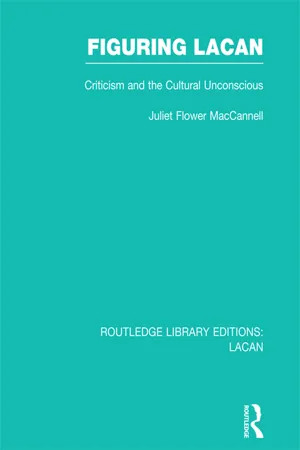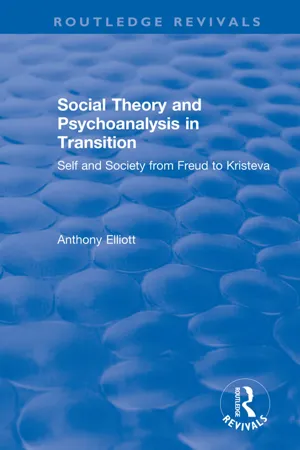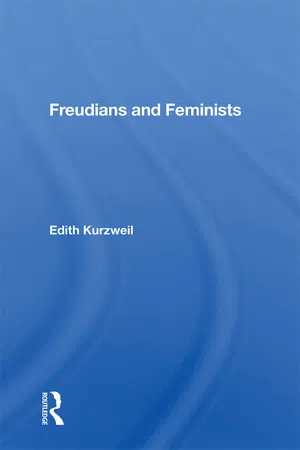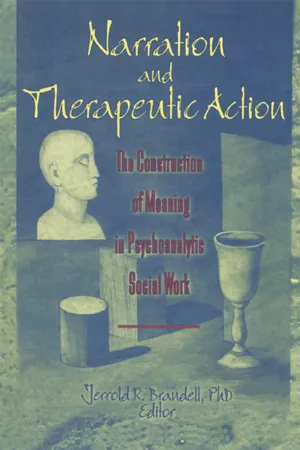Jacques Lacan
Jacques Lacan was a French psychoanalyst known for his influential theories on the relationship between language, desire, and the unconscious. He emphasized the role of the "mirror stage" in the formation of the self and the importance of language in shaping our understanding of reality. Lacan's ideas have had a significant impact on literary theory, particularly in the analysis of narrative and the construction of subjectivity.
7 Key excerpts on "Jacques Lacan"
- eBook - ePub
Theory in Social and Cultural Anthropology
An Encyclopedia
- R. Jon McGee, Richard L. Warms(Authors)
- 2013(Publication Date)
- SAGE Publications, Inc(Publisher)
...Camille Robcis Camille Robcis Lacan, Jacques Lacan, Jacques 452 455 Lacan, Jacques Jacques Lacan (1901–1981) was a French psychiatrist and psychoanalyst who had a deep influence on philosophy, literary theory, and anthropology. One way to describe the work of Lacan is as an anthropology—a theory of what it means to be human. According to Lacan, Sigmund Freud’s greatest contribution was the invention of the unconscious and the emphasis he placed on sexuality, both of which were specific to humans. Unlike animals, governed by instincts, nature, and biology, humans were defined by desire and language, by their ability to symbolize. Human subjectivity was thus always a form of intersubjectivity in which the encounters with the social and the “Other” were key in the construction of the self. Lacan’s thought presents a number of intrinsic difficulties. On a historical level, Lacan insisted again and again on the fact that he was simply reading Freud, that all of his concepts were anchored in Freud’s texts. Such a claim is problematic in light of the fundamentally divergent interpretations of Freud throughout the 20th century. If Lacan’s writings found little echo in the United States or in Great Britain, they nonetheless radically shaped the field of French psychoanalysis. Whether one argued with or against him, Lacan became a necessary reference within the French context. Lacan’s work is also extremely complex on a theoretical level. His notoriously dense prose, his opaque references, his frequent digressions, and his general refusal of any systematic presentation have led many scholars to misconstrue or to simply dismiss his thought. The difficulty of Lacan’s style, however, must be understood within his larger philosophical enterprise, as an attempt to perform his theory, to put it into practice...
- eBook - ePub
- Chris Murray, Chris Murray(Authors)
- 2005(Publication Date)
- Routledge(Publisher)
...Jacques Lacan (1901–81) French Psychoanalyst David Macey In the eyes of many, Lacan is the most influential and certainly the most controversial psychoanalyst since Freud himself. The difficulty and density of his style of writing merely add to the controversy surrounding him and have resulted in both extreme adulation and the dismissive claim that he is a mere charlatan with a considerable gift for rhetoric. The collection of papers published in 1966 as Écrits (literally ‘Writings’) established Lacan’s reputation as one of France’s leading intellectual figures and made psychoanalysis an essential point of reference for all the human sciences. At that time, Lacan was regarded as one of high priests of structuralism; now, as his debts to phenomenology and even Surrealism become more apparent, matters look more complex. Lacan’s only real book is a study of a psychotic woman patient published in 1932 (De la psychose paranoïaque dans ses rapports avec la personnalité); the texts collected in his Écrits (1966) are essays, transcripts of lectures, and occasional writings; less than half are included in the English translation (1977). The publication of transcripts of his seminar began in 1973 and continues. Lacan’s primary concern is always with the theory of psychoanalysis, and his many literary and artistic references are always subordinate to or illustrative of his concerns as a teacher of psychoanalysis. Lacan broadly subscribes to Freud’s view that creativity is largely the product of sublimation, or of the redirection of anarchic sexual drives into socially and intellectual valorized forms, but he rarely makes this explicit. The psychology of creativity and creative artists is, quite simply, not one of Lacan’s major concerns...
- eBook - ePub
Figuring Lacan (RLE: Lacan)
Criticism and the Unconscious
- Juliet Flower MacCannell(Author)
- 2014(Publication Date)
- Routledge(Publisher)
...It is interesting that, in distinction to the adventures of Freud on both sides of the Atlantic and in relationship to Anglo-American culture, Lacan has managed, with relatively little delay, to have an impact simultaneously on French and Anglo-American culture, especially in its literary critical department. Use of his key concepts — the phallicised signifier in both semiotic and feminist criticism (Kristeva, Culler, Gallop, Mitchell), the gaze and suture in film studies (Mulvey, Berger), the figure and the body in deconstructive criticism (Derrida, de Man, Hartman, Spivak), transference in formalist criticism (Felman) — has touched nearly all the leading areas of literary criticism. Literature has responded to Lacan in a much more comprehensive manner than it did to the early uses of Freud for literature. For one thing, Lacan reverses the priorities, not reading literature in the light of Freud, but Freud as literature. While Lacan's influence has been greatest perhaps on those kinds of literary criticism already open to going beyond the narrow confines of literary purity, it is also the case that relatively formalist critics like Shoshana Felman, who was among the first to study and use Lacan (although her methods are closer to Freud), have found in Lacan a rich set of terms for formulating and formalising textual analyses. At the other extreme, studies oriented toward the ‘social’ rather than the ‘literary’ or ‘psychological’, even among Marxists like Jameson, find Lacanian terminology increasingly adaptable to and heuristic for their analyses, particularly in the study of ideology: the Other and the symbolic order appear with more and more frequency and now, almost, as a matter of course in such work. Even when critical distancing is expressed in his regard, nothing like either the wholesale adoption or rejection of Freud for criticism appears in the fate of Lacan and literature...
- eBook - ePub
Social Theory and Psychoanalysis in Transition
Self and Society from Freud to Kristeva
- Anthony Elliott(Author)
- 2019(Publication Date)
- Routledge(Publisher)
...I then discuss certain problems in Lacan's reformulation of the conscious/unconscious dualism as a linguistic relation. In making these critical observations, I shall attempt to give some indication throughout of how these difficulties might be overcome. Lacan's Mirror Stage: The Misrecognition of Self Throughout the first phase of his career, from his first paper to the International Psychoanalytic Association in 1936 through to the mid-1950s, Lacan elaborates a complex account of the constitution of human subjectivity. The central focus of these early writings concerns those primordial points of ego formation that Lacan names the 'imaginary order'. The imaginary for Lacan is that aspect of psychical organization which is formed in and through pre-Oedipal experience. It is a realm of being in which the division between subject and object does not exist. In fact Lacan claims that from this imaginary merging of self and other it is possible to redramatize the genesis of the ego. Concerning this emergence of the self, Lacan contends that narcissistic identifications enable the formation of selfhood, that a primordial alienation characterizes the subjective process, and that 'lack' structures all self-other relations. The main philosophical themes in Lacan's writings are to be found not so much in his interpretation of Freud, but in his discussion of Hegel and the dialectic of intersubjectivity - in an analysis which is avowedly indebted to Alexandre Kojéve's reading of Hegel's Phenomenology of Spirit (1807). 2 The general import of the Hegelian-Kojévian account of self-consciousness, Lacan claims, is its stress on the constitutive place of the other (person) in the formation of the self. In this respect, Lacan often cites Hegel as support for the view that the self can only grasp itself through its reflection in, and recognition by, the other person...
- eBook - ePub
- Edith Kurzweil(Author)
- 2019(Publication Date)
- Routledge(Publisher)
...5 Jacques Lacan and French Feminism The Second Wave of American feminism relied heavily on Jacques Lacan's rereading of Freud's texts and on publications by his entourage. This shift of focus from Freud's cases to deciphering the way he wrote them up inevitably sparked the imagination of literary scholars. Thus it should not surprise us that in America Lacan's ideas first were explored in departments of literature and that in this environment empirical inquiries of women's concerns by sociologists and anthropologists took a backseat. Moreover, Freudians all along had analyzed literary works and their authors' lives in tandem, and such critics as Lionel Trilling, Erich Heller, and Norman Holland had championed psychoanalytic critiques. In the mid-1970s, some professors of English extended this method to a variety of approaches based on Lacanian concepts. And like those psychoanalysts who increasingly were emphasizing the verbal components of their therapies, American feminists were beginning to probe theories of feminism with the help of linguistic psychoanalysis. By infusing American ego psychology with analyses based on Saussurean structural linguistics, the emerging feminist theories became inordinately complex and no longer adhered to the proverbial American pragmatism. Lacan maintained that misunderstanding was a necessary component of the language of the unconscious to drive home the fact that even as we uncover some previously unconscious knowledge we already are in the process of adding yet another layer of unconscious content. To account for this process, he advocated that his followers keep decoding the unconscious elements and intermittent perceptions of all dialogues—even though ultimately ambiguities and misunderstandings never can be clarified...
- eBook - ePub
Narration and Therapeutic Action
The Construction of Meaning in Psychoanalytic Social Work
- Jerrold R Brandell(Author)
- 2018(Publication Date)
- Routledge(Publisher)
...Chapter 4 A Sense of Orders: An Introduction to the Theory of Jacques Lacan Barbara Berger SUMMARY. This paper provides an introduction to some of the basic concepts of the provocative French psychoanalyst Jacques Lacan. It illustrates the ways in which these concepts color the therapist’s understanding of the patient as the therapist’s attention is guided by the patient’s expressions of thought and feeling. The response of the therapist is motivated by the interface which develops between this understanding and theoretical underpinnings. Clinical vignettes illustrating Lacan’s mirror stage and his three basic orders, the Real, the Imaginary, and the Symbolic punctuate the explanations of these concepts. The paper weaves observations on the signification of language with examples of clinical interpretations. [Article copies available from The Haworth Document Delivery Service: 1-800-342-9678. E-mail address: [email protected]]. Speech is the vehicle through which therapy is conducted. The dialogue between patient and therapist provides the medium through which interpretations and understanding are generated. Freud’s discovery of the “talking cure” was actually the discovery of a new language, the language of the meaning of symptoms (Freud, 1895/1955, Vol. 2, p. 30). Symptoms, for Freud, are understood as symbols through which people illustrate their inner conflicts. The French psychoanalyst, Jacques Lacan, emphasized the value of Freud’s discovery and urged a return to Freud with the goal of understanding the implications of Freud’s greatest achievement, the discovery of the unconscious. For Lacan, the symptom is not a symbol concealing meaning, but as Ellie Ragland-Sullivan explains, “The symptom reveals ‘untranslated’ unconscious meaning at the surface of the body speech and action” (Ragland-Sullivan, 1986, p. 259)...
- eBook - ePub
- Raman Selden, Peter Widdowson, Peter Brooker(Authors)
- 2016(Publication Date)
- Routledge(Publisher)
...For Lacan there never were any undistorted signifiers. His psychoanalysis is the scientific rhetoric of the unconscious. Lacan’s Freudianism has encouraged modern criticism to abandon faith in language’s power to refer to things and to express ideas or feelings. Modernist literature often resembles dreams in its avoidance of a governing narrative position and its free play of meaning. Lacan himself wrote a much discussed analysis of Poe’s ‘The Purloined Letter’, a short story containing two episodes. In the first, the Minister perceives that the Queen is anxious about a letter she has left lying exposed on a table unnoticed by the King who has entered her boudoir unexpectedly. The Minister replaces the letter with a similar one. The Queen cannot intervene for fear that the King will be alerted. In the second episode, following the Prefect of Police’s failure to find the letter in the Minister’s house, Dupin (a detective) immediately sees it openly thrust in a card-rack on the Minister’s mantlepiece. He returns, distracts the Minister, and replaces the letter with a similar one. Lacan points out that the contents of the letter are never revealed. The story’s development is shaped not by the character of individuals or the contents of the letter but by the position of the letter in relation to the trio of persons in each episode. These relations to the letter are defined by Lacan according to three kinds of ‘glance’: the first sees nothing (the King’s and the Prefect’s); the second sees that the first glance sees nothing but thinks its secret safe (the Queen’s and, in the second episode, the Minister’s); the third sees that the first two glances leave the ‘hidden’ letter exposed (the Minister’s and Dupin’s). The letter, then, acts like a signifier by producing subject positions for the characters in the narrative...






